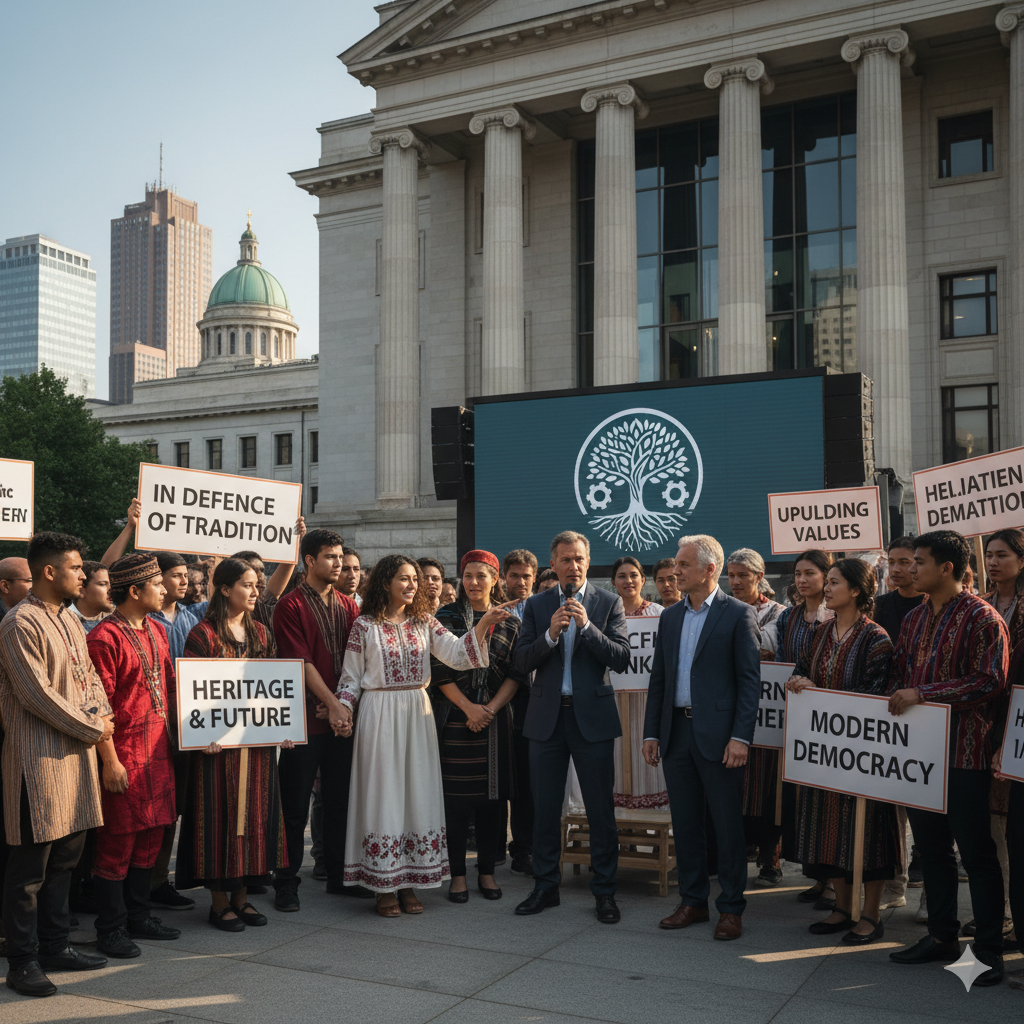
In Defence of Tradition: Upholding Values in a Modern Democracy
New Delhi, 2025 — As societies worldwide grapple with the rapid pace of modernization, India stands out for its commitment to preserving traditional values within the framework of a modern democracy. This dedication serves not only to uphold cultural heritage but also to reinforce the moral and ethical foundation necessary for a robust democratic society.
The Role of Tradition in Modern Indian Democracy
Traditions in India encompass a wide spectrum of cultural, religious, and social practices that have shaped the nation’s identity for centuries. In a democratic context, these traditions offer a sense of continuity and stability, serving as an anchor in times of rapid social and economic change.
Balancing Tradition and Modernity
- Cultural Identity and National Unity Traditions play a critical role in fostering national unity in a country as diverse as India. By celebrating traditional festivals, languages, and customs, India strengthens the bonds among its citizens, promoting a sense of shared identity and mutual respect across different communities.
- Moral Values and Governance Traditional values often emphasize principles such as duty, respect, and community service, which are integral to democratic governance. These values encourage citizens to participate actively in the democratic process, from voting to public service, and help ensure that leaders are held accountable.
- Education and Transmission of Values India’s education system integrates traditional values with modern liberal arts and sciences, providing students with a well-rounded perspective on global and local issues. This integration helps young Indians appreciate their rich heritage while equipping them with the skills needed to navigate and contribute to a globalized world.
Challenges in Upholding Traditions
While there are many benefits to preserving tradition, there are also significant challenges:
- Relevance to Contemporary Issues As society evolves, some traditional practices may seem out of step with contemporary values, such as gender equality and human rights. It is crucial for democratic societies to continually assess and reinterpret traditions to ensure they contribute positively to modern life.
- Avoiding Cultural Insularity In a globalized world, there is a risk that a strong focus on tradition might lead to insularity or nationalism that excludes other cultures and perspectives. It is important for democracies like India to maintain openness to other cultures while celebrating their own traditions.
The Global Context
India’s approach to blending tradition with democracy offers valuable lessons for other countries facing similar challenges. By successfully navigating these complex dynamics, India demonstrates that tradition and modernity need not be in conflict; rather, they can complement each other and enrich the democratic experience.
Conclusion
In defense of tradition within a modern democracy, India exemplifies how deeply held cultural values can coexist with progressive democratic principles. As the nation continues to evolve, the task will be to ensure that these traditions adapt constructively, supporting not just the preservation of cultural heritage but also the advancement of democratic ideals. Upholding traditional values in a way that enhances democratic resilience and inclusivity will remain a vital endeavor for India as it moves forward on its democratic journey.


